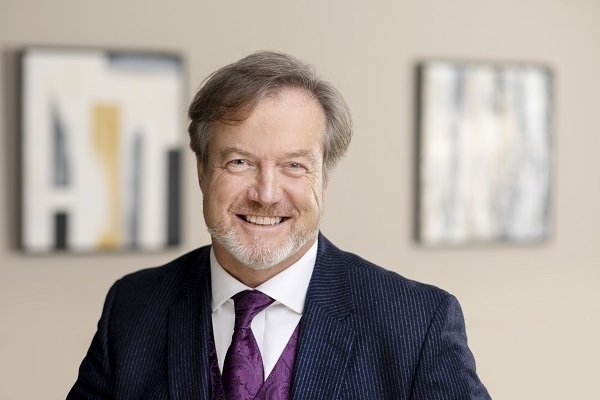Tue 31st Aug 2021
Will changes to injunctive relief rules reduce Germany’s advantage as a favourable jurisdiction for patent proprietors?
Services: IP litigation and disputes, IP strategy, Opposing and defending a patent at the EPO, Patents
Sectors:
The Second Patent Law Modernisation Act (Patentrechtsmodernisierungsgesetz) aims to simplify and modernise the Patent Act (Patentgesetz) and other IP laws in Germany and it came into force on 18 August 2021.
Sec. 139(1) PatG (Patent Act) now states that the infringement of a patent does not inevitably entitle the infringed party to injunctive relief but that this claim may, in exceptional cases, be restricted by proportionality considerations. The Federal Court of Justice acknowledged this principle in the 2016 Wärmetauscher ruling while refusing to grant a grace period in that case. The new Sec. 139(1), 3rd sentence PatG:
This right [to injunctive relief] shall be precluded to the extent that, considering the special circumstances of the particular case and the principles of good faith, it would cause the infringer or third parties disproportionate hardship not justifiable by the right of exclusivity.
Olaf Ungerer, a German and European Patent Attorney in Munich, outlines the features of the proportionality principle, the impact on compensation and Germany’s position as a favourable jurisdiction for patent proprietors.
Injunctive relief in patent law and the proportionality principle
The express reference to the principles of good faith, introduced only by the Legal Affairs Committee, makes it clear that the test for unjustifiable hardship, which would preclude injunctive relief being granted, requires an assessment of all facts and circumstances of the case, specifically including the patent proprietor’s legitimate interests.
The legislator’s explanatory report considers, however, that the infringed party’s legitimate interest in an injunction may be less pronounced where that party itself does not manufacture or have products manufactured in direct competition with the patent-infringing product, but primarily seeks to monetise its rights. In scenarios such as these, the injunctive relief claim may be restricted where it is used as leverage to enforce obviously excessive royalties. Injunctive relief may also be limited where the infringer, if he complied with the claim immediately, would suffer exceptionally great damage completely disproportionate to the value of the infringed patent.
Furthermore, the unconditional enforcement of injunctive relief shall be precluded where a patent is infringed by a secondary element of a component for a complex product, such as a car. Redesigning that element would require considerable time and economic resources, resulting in a lengthy stop in production of the complex product, which would be completely disproportionate to the value of the infringed patent. Subjective elements may become relevant as well, such as the question whether the patent infringer took possible and reasonable precautions to avoid patent infringement, for example a freedom-to-operate analysis.
Finally, third party interests with implications for constitutional rights may have to be considered and support restricting the right to injunctive relief, for example if a prohibitory injunction for infringing a patent granted on a relatively insignificant function would cripple an entire infrastructure, such as a mobile communication system.
Successfully applying the proportionality principle mainly has the legal effect – see the wording of the new law, “to the extent that” – of partially precluding the injunctive relief claim by granting a reasonable conversion or grace period, while fully and permanently denying it in exceptional cases.
Are there options for “Treble or higher damages” as reasonable compensation?
If injunctive relief has been partly or fully refused, the infringed party is entitled to compensation from the infringer, which has been defined as a mandatory consequence by another amendment of the government bill, again introduced by the Legal Affairs Committee. The new Sec. 139(1) 3rd sentence PatG:
In such a case, the infringed party shall be awarded a reasonable compensation in money.
Recent discussions among lawyers, judges and scientists indicate that such a reasonable compensation may create a basis for increased overall damages which may amount to a multiple of typical German damages (royalty based, lost profit or infringer profit) as a tradeoff for non-granted injunctions.
The new Sec. 139(1) 4th sentence PatG still allows the infringed party to claim further damages from the infringer under Sec. 139(2) PatG:
Nothing in this shall prejudice the claim for damages laid down in paragraph (2).
Will Germany lose its advantage as favorable jurisdiction for patent proprietors?
Historically, Germany has often been regarded as being a good jurisdiction for patent proprietors to take action against infringers, in view of relatively speedy actions at relatively low cost compared to some countries, and with injunctions usually being granted if infringement is proven.
It is unlikely that the express inclusion of the proportionality principle in Sec. 139(1) PatG, which also had to be observed in the past under the terms of case law, will actually cause the courts, if patent infringement has in fact been confirmed, to restrict or even refuse awarding injunctive relief in a significant number of cases. The reasons why this appears unlikely are the frequent emphasis placed on the highly exceptional character of the possible restrictions, the clarifying nature of the provisions laid down in the legislative material, and statements to that effect from the judiciary.
This briefing is for general information purposes only and should not be used as a substitute for legal advice relating to your particular circumstances. We can discuss specific issues and facts on an individual basis. Please note that the law may have changed since the day this was first published in November 2021.


